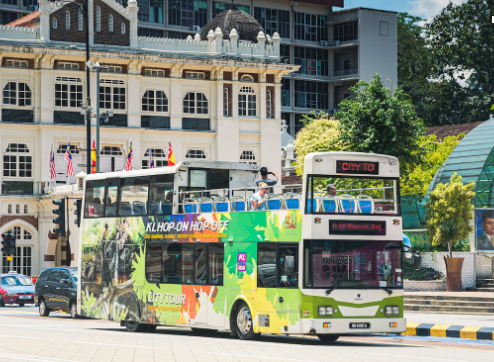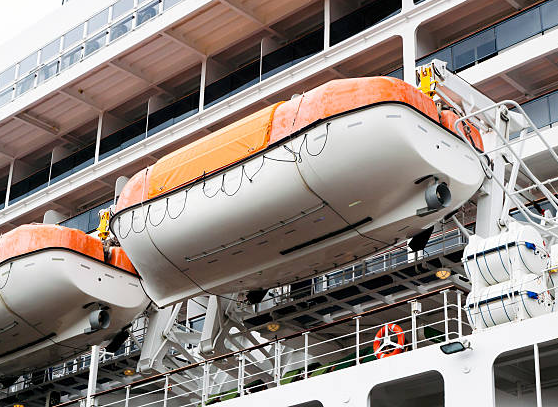
How to Travel on a Budget
December 18, 2024Eco-friendly travel may seem daunting because it’s such a big concept, but at its core is a simple idea. How can travelers travel around the world with a little more intent and less impact? There are many ways to reduce and limit the environmental impact of travel, all from the decision made when booking the trip to the moment the traveler comes face-to-face with wildlife abroad.
Also, thinking about where they’re traveling can help globetrotters become more eco-friendly. The small decisions travelers make every day can ultimately reduce their environmental impact. Here are some helpful tips to start eco-friendly travel.

Book with a Sustainable Tour Operator
Traveling the world in a greener way starts with a decision travelers make before leaving home. When booking travel with a travel agent or arranging travel, consider the values and practices of that travel agent.
Booking through sustainable tour operators can reduce travelers’ environmental impact in a number of different ways. Sustainability can mean a lot of things, but in this case, tour operators focus on supporting the local economy and environment rather than using it for personal gain. This means booking with a travel agency that hires local guides, is aware of resource consumption, and gives back to the community.
Travel by Land Whenever Possible
Airplanes are known to produce large amounts of environmentally harmful emissions. While round-the-world travel often can’t eliminate air travel entirely, choosing alternative modes of transportation where feasible can go a long way toward reducing an individual’s carbon footprint.
According to the BBC’s climate change study, choosing to travel between cities by train or bus instead of taking short-haul flights can reduce CO50 emissions by 80% to 50%。
For longer trips between cities, consider booking overnight trains and buses. It’s better for the environment and the traveler’s budget; That’s the sum of one night’s accommodation and transportation! One example is the sleeper train route in Europe, which offers breathtaking views and comfortable accommodation.
Local Store
Local shopping means buying goods that are sourced, grown, or manufactured in the area. This looks like buying seasonal products from your destination (not imported from abroad), or going to your local craft market to buy handmade bracelets instead of souvenirs mass-produced at the airport.

How can local shopping reduce environmental impact? It’s a small action, but it’s a big impact – shopping locally while embarking on a globetrotting can help travelers reduce their environmental impact by limiting the carbon emissions required to provide them with goods or services. For example, shopping locally means not having to transport goods from another country to the point of sale.
Bring a Reusable Water Bottle
No doubt travelers have heard calls from climate activists in their countries to abolish single-use plastics and adopt reusable water bottles. This is just as important on the go, and today more than ever.
How does this reduce its environmental impact? Choosing to travel with reusable water bottles can reduce the amount of single-use plastic a person consumes (as many water bottles are not recycled properly).
Book Eco-Friendly Accommodation
Travelers can choose to stay in eco-conscious hotels and hostels during their trip as another way to go green. As the hospitality and tourism industry becomes increasingly aware of travelers’ desire for eco-awareness, many hotels are promoting their sustainability initiatives and promoting ecotourism on their websites. Be sure to do your research before booking.
How does this reduce its environmental impact? Booking an eco-conscious hotel or hostel means supporting a business that also contributes to the environment. Depending on the hotel/hostel, they may conserve water by washing bed linen and towels less often, or they may offer reusable amenities in the room. They may have moved away from plastics and switched to biodegradable materials.
For example, some hotels in Hong Kong provide guests with a key card that can turn on the lights and air conditioning in the hotel room to help guests save energy. When they leave, they need a key card to re-enter the room, so they must remember to take it and automatically turn off the lights and air conditioning when they are away.
Book a Direct Flight (If Possible)
For many travelers, flying is a very common thing. To be more environmentally friendly, frequent flyers can focus on booking direct flights instead of those that require one or more connections.
How can non-stop flight reduce environmental impact? Flying is bad for the planet, but travelers may not realize that flying directly can significantly reduce their total carbon emissions per flight. According to NASA research reported by The New York Times,25%of total airplane carbon emissions come from takeoff and landing. By eliminating multiple takeoffs and landings with direct flights, travelers travel more environmentally friendly.
Eat at Local Restaurants (Avoid Chain Stores)
Similar to the idea of shopping locally, eat locally. Travelers can dine in restaurants run as independent businesses by local residents of the town or city to support the local economy.

How can eating in place reduce environmental impact? Choosing local restaurants means choosing locally sourced ingredients, supporting sustainable tourism (rather than mass tourism), and not offering business to companies that produce their products on a large scale.
Hang Clothes to Dry
Many Airbnb and hotels offer washers and dryers in suites or laundry rooms. While this may seem convenient, using them while traveling creates a huge waste of energy. Washing laundry is necessary, but the drying process can be done naturally.
How does hanging drying reduce environmental impact? Every time a person chooses to hang their clothes instead of running them in the dryer, they save the equivalent of burying three pounds of coal in the ground.
Water Conservation
Fresh water is not infinite, which is why the push to conserve water has become so urgent over the past two decades. There are many ways to conserve water when traveling, including replacing the bathtub with a shower and choosing not to participate in hotel programs like housekeeping.
How can water conservation reduce environmental impact? Saving water helps reduce the environmental impact of travelers, both by limiting travelers’ chances of polluting clean water and by saving energy.
Do Not Feed Wild Animals
In order to be a more environmentally friendly visitor to the region, visitors must respect wildlife. Specifically, this means not feeding wild animals while hiking, staying at a resort, or visiting a natural park.
It also means traveling light and observing the animals’ natural habitat (e.g. taking a closer look at the penguin colony).
How can respect for wildlife reduce environmental impact? Feeding wild animals has a lasting impact on ecosystems. It can make animals sick or worse, ultimately altering the biodiversity of an area. Avoiding feeding wild animals is the best way to avoid negative effects on them.



